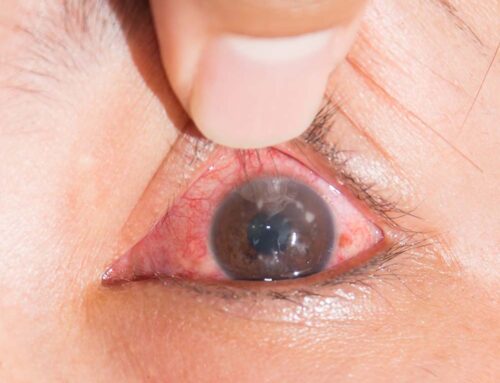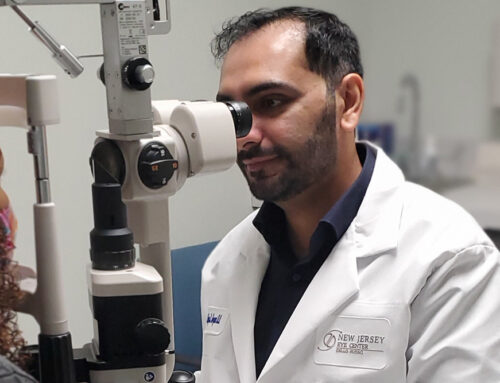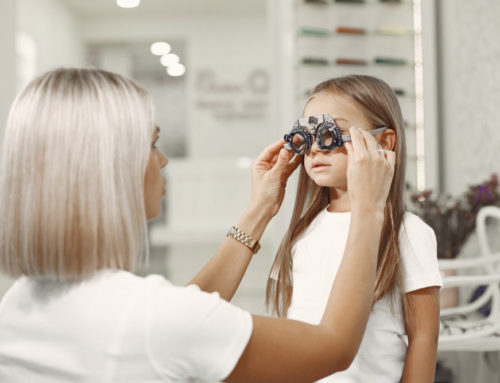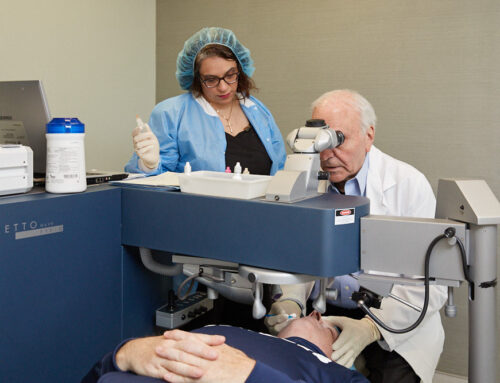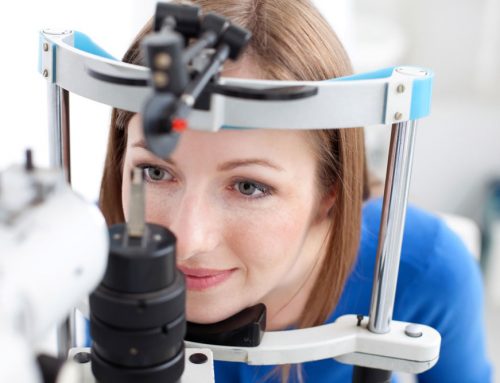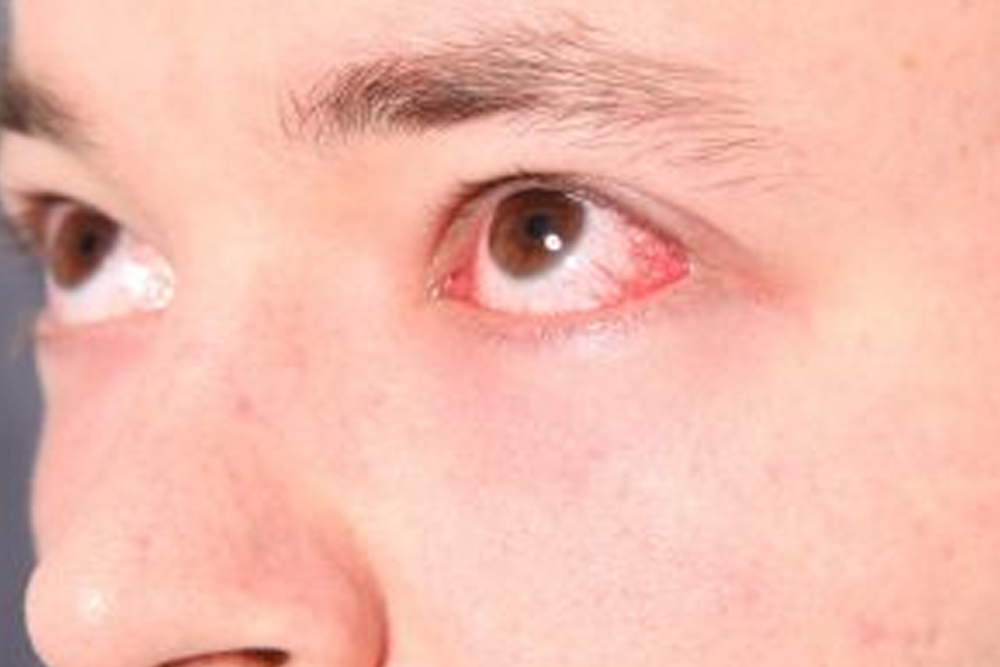
Eye allergies occur when the eye comes into contact with an irritating substance, such as pollen, dust or mold. While most people might not be affected by such substances, people with certain eye allergies may suffer.
They involve an allergic reaction to specific substances or allergens. This often results in itchy, red, swollen or watery eyes. However, eye allergies (unlike pink eye) are not contagious.
If you think you have an eye allergy consult an eye doctor or allergist. It’s best to see an allergist if you have other allergy-related conditions, such as asthma or eczema.
Triggers
Triggers of eye allergies include various kinds of pollen; dust mites and mold in homes; as well as irritants such as perfume, exhaust fumes or cigarette smoke.
Symptoms
Symptoms of eye allergies vary depending on the type of allergen. These include redness and burning as well as sniffing, sneezing and watery discharges from the eyes. Some of the symptoms are the same as for certain eye diseases, so a careful diagnosis is essential.
Types of eye allergies
A very common allergy is seasonal allergic conjunctivitis – caused by different types of pollen. Those affected may have dark circles under their eyes and/or puffy eyelids and often suffer from hay fever.
Perennial allergic conjunctivitis is caused by dust mites or mold in the home and can occur all year round.
A less common but more serious allergy is vernal keratoconjunctivitis which primarily occurs in boys and young men.
Atopic keratoconjunctivitis can affect older people, especially those with a history of allergic dermatitis.
Contact allergic conjunctivitis is caused by contact lenses or by the proteins from tears that bind to the surface of the lens. Giant papillary conjunctivitis is a more serious form of the same condition.
Management of eye allergies
Wherever possible avoid triggers by changing your routines or behavior. Some of the things you can do include:
- Stay indoors when pollen counts are high
- Close windows to reduce pollen levels in the home
- Wear sunglasses when outside to reduce pollen impacts
- Use dehumidifiers to control mold
- Take action to limit exposure to dust mites
- Instead of sweeping a floor, use a mop
- Try not to rub your eyes
- Wash your hands after stroking an animal
Treatments
While there’s no cure for eye allergies, treatment can help relieve symptoms. Medications and eyedrops are often effective. However, if you are prone to eye allergies, these are likely to recur whenever you come into contact with allergens.
Try this simple home remedy: Place a moist washcloth over closed eyes. This can help alleviate dryness and irritation but needs to be done several times a day.
Doctors usually treat eye allergies with antihistamines, decongestants or steroids.
Non-prescription medications
Over-the-counter eyedrops and oral medications can provide short-term relief. These may include decongestant eyedrops or oral antihistamines. While oral antihistamines can help relieve itching associated with eye allergies, they are of little benefit and may even be harmful if used long-term. Also, some non-prescription drugs can cause side effects.
It’s always best to seek your doctor’s advice on over-the-counter medications. You should never use non-prescription medicines over a protracted period.
Prescription medications
Prescription medications, which may be more effective, include various types of eyedrops and nonsedating oral antihistamines. Some of the latest eyedrops combine an antihistamine and a mast cell stabilizer to treat and/or prevent eye allergies. Corticosteroid eyedrops can help treat severe eye allergies, while nonsteroidal anti-inflammatory drugs can relieve itching. Your doctor will advise you on usage and any side effects.
Allergy shots can help your body build up immunity to certain allergens for longer-term relief.
We have extensive experience in diagnosing and treating eye allergies. Visit us at the New Jersey Eye Center in Bergenfield.


